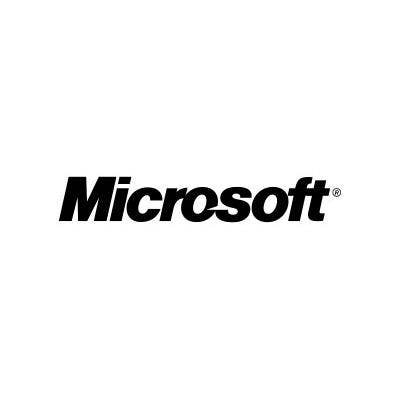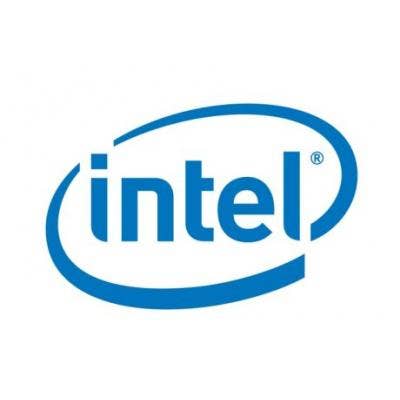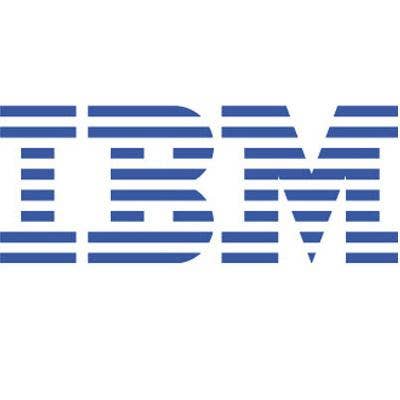Debunking 15 Myths About Microsoft

Windows Vista Is A Bird That Can't Fly
Lee Nicholls, global solutions director for Microsoft Technologies at Getronics, a global, $3.4 billion IT services company and Microsoft Gold partner, believes the problems that have plagued Vista have more to do with marketing than technological shortcomings.
"Microsoft did a really bad job of communicating the enterprise value of Vista when it was launched. There is lots of value to the OS that didn't get communicated," said Nicholls.
Security is not a selling point, but a requirement, and Microsoft seems to have lost sight of this reality with its marketing of Vista, according to Nicholls.
Todd Swank, vice president of marketing at Nor-Tech, a Burnsville, Minn.-based system builder, says much of the criticism of Vista is unfounded. "It's so easy for everyone to bash Vista, and people have it in their heads that Vista sucks. But Microsoft has been working hard to iron out the kinks," said Swank.
"We're running into software products that are not ready for Vista, but is this a Microsoft problem? Of course not. The ISV community had the opportunity to play with the betas [of Vista]," said Stuart Crawford, director of business development for Canadian IT services firm IT Matters.

Microsoft Licensing Is A Nightmare
OK, this 'myth' may be a bit of a stretch -- most Microsoft partners would tell you they've encountered at least some frustration trying to navigate the Byzantine alleyways of Microsoft software licensing.
However, there are those who insist that a little bit of work goes a long way toward reducing Microsoft licensing confusion. "My personal opinion is that licensing isn't really that complex if partners invest about an hour every six months to seriously learn about it," said Erik Thorsell, president of Success Computer Consulting, a Minneapolis-based Microsoft Gold partner.
"If we just spend those few minutes learning about the licensing options that are available for our clients, it really will become less overwhelming. I also think that Microsoft partners have a responsibility to do this," added Thorsell.
Frank Ballatore, president of The New England Computer Group, in Ridgefield, Conn., says Microsoft licensing can present problems for channel partners that try to figure it out on their own, a practice he doesn't advocate. "Whenever I have questions, I call my Microsoft resources, and case solved. It's easy if you know where to get the answers," he said.

Anyone Can Make Money Selling SharePoint
Microsoft has been telling partners for years to ready themselves for SharePoint, and those that heeded that message are now seeing the fruits of that labor, said Ric Opal, vice president of PetersAssociates, an Oakbrook Terrace, Ill.-based solution provider. "Anyone can, in fact, make money with SharePoint, if they're willing to invest and do what it takes to become competent with the technology," he said.
SharePoint has many people claiming to be able to build out solutions, but relatively few true 'enterprise architects,' said Ken Winell, CEO of Expertcollab, a SharePoint-focused solution provider in Florham Park, N.J. For partners with the right skills, however, SharePoint is a great business, but one that requires a comprehensive understanding that extends beyond the technology, he said.
"You need to understand collaboration concepts, social networking, and how teams interact before you can develop a site definition or design templates. Otherwise, customers run the risk of spending money on a solution that is dead on arrival," said Winell.

Steve Ballmer Is A Wild Man
OK, so maybe he has calmed down a bit from his 'Monkeydance' days. But Microsoft CEO Steve Ballmer still exudes a fun, youthful vibe that belies his age and standing as CEO of the world's largest software company. Ballmer recently threw a bone to tech historians when he reprised the Monkeydance in an interview with venture capitalist Guy Kawasaki at Mix '08 in Las Vegas.
Solution providers love the energy Ballmer brings to the table and don't feel it detracts from the serious nature of the business he controls. "I think there needs to be a lighthearted side of all business," said Mitch Cannady, CEO of Spinnaker Solutions, an Irvine, Calif., solution provider.
"He's a passionate individual, no doubt. But he can also tell you, within a fraction of a decimal, information about his P&L, and that is unique," said Ric Opal, vice president of PetersAssociates, an Oakbrook Terrace, Ill.-based solution provider.
Matt Scherocman, vice president of consulting services at PCMS IT Advisor Group, a Cincinnati-based solution provider and Microsoft Gold partner, sums it up best: "I love coming to work every day, and the team of people I interact with is excited, enthusiastic, and has energy. However, Ballmer is at a whole different level in these areas."

Vista-To-XP Downgrades Are Embarrassing To Microsoft
As a result of Vista's well-publicized technical glitches and application compatibilities, the downgrade rights Microsoft offers with the high-end Vista Business and Vista Ultimate editions have received unprecedented attention. While the rising use of downgrade rights might seems like an indictment of Vista's flaws, it's actually a sign of good customer service on Microsoft's part, according to some solution providers.
Todd Swank, vice president of marketing at Nor-Tech, a Burnsville, Minn.-based system builder, says Microsoft has made the process of exercising downgrade rights easier than in the past.
"Microsoft is simply being realistic: They know that XP is a good product, and they're getting a Vista license sale whenever downgrade rights are exercised," said Swank. "Microsoft obviously wants companies to transition to Vista, but I don't think they would have made downgrade rights as easy to use if they really were against people using them."
"Downgrade rights are about flexibility for companies, and not about generating money for Microsoft," said Lee Nicholls, global solutions director for Microsoft Technologies at Getronics, a global, $3.4 billion IT services company and Microsoft Gold partner.

Microsoft and Cisco Will Play Nice In Unified Communications
No matter how many dog-and-pony shows Microsoft and Cisco stage to discuss building bridges of interoperability in unified communications, many VARS doubt that the two tech Goliaths will ever be willing to share the market. And, in light of the fierce competition that's brewing between Cisco and Microsoft on expanding number of fronts, who can blame them?
"We're very concerned that the motivation to collaborate [in unified communications] is not there today," said Doug Gallant, CTO at NSPI, a Roswell, Ga.-based solution provider that partners with both companies.
"Both companies clearly have their markets and individual opportunities, but by working together, they would vastly expand and accelerate opportunities and benefits for customers, providers, and partners," Gallant said.
Lee Nicholls, global solutions director for Microsoft Technologies at Getronics, a global, $3.4 billion IT services company and Microsoft Gold partner, says Cisco and Microsoft "have no choice but to work together" in unified communications.
"Neither company is fully mature in the other's market: Cisco isn't mature in collaboration, and Microsoft can't yet challenge Cisco in terms of who handles the dial tone," said Nicholls.

Microsoft Is The Virtualization Turtle To VMware's Hare
The number one thing you hear about Microsoft is that they're too late to the dance in virtualization, said Mark Crall, president of Charlotte Tech Care Team, a Microsoft Small Business Specialist in Charlotte, N.C. that partners with both companies.
"It's true that VMware has a head start, but the reality is that Microsoft has the R&D and internal resources and marketing engine to get up to speed extremely quickly. Combine that with their ability to lowball, and I think they'll be a force," Crall said.
Chris Ward, senior solutions architect at GreenPages Technology Solutions, Kittery, Me., believes the key to the success of Microsoft's virtualization strategy rides on MinWin, the slimmed down version of the Windows core that will serve as a framework for building all future Windows based offerings.
"The problem with Hyper-V is that it's not truly 'bare metal.' It's still running Windows Server 2008, albeit maybe a slightly less bloated version with Server Core," said Ward. "If MinWin becomes a reality and allows Microsoft to completely modularize the Windows OS, then VMWare, Citrix, and Virtual Iron had better watch out."

Microsoft Isn't Innovative
This canard has been floating around for decades, and even IT pundits who've carefully cultivated their disdain for Microsoft over the years admit it's a stance that's difficult to defend.
If you're searching for examples of Microsoft innovation, look no further than Microsoft bringing the graphical user interface to the PC, and making the PC almost as easy to use as the Mac, says Ron Herardian, president of Global System Services, a Mountain View, Calif.-based solution provider.
Stuart Crawford, director of business development for Canadian IT services firm IT Matters, says Microsoft's innovations are sometimes obscured by the fact that its competitors are innovating just as fast. "Microsoft is often left playing catch-up, which could lead to the perception that they are not innovating by purchasing other technologies," said Crawford.
"They do innovate, it's just a bit slower [than other companies], and that's because of the sheer market size they deal with," said Lee Nicholls, global solutions director for Microsoft Technologies at global IT Services firm Getronics.
Microsoft is continually working to create new, better and advanced products and new enhancements are obvious throughout their product line, says Phil Aldrich, Microsoft practice director at Dimension Data Americas.
"In fact, the level of change in the new suite of Microsoft offerings is unprecedented. As Microsoft adds to its product lines, smart companies are taking advantage of this in the marketplace by developing complementary products," Aldrich said.

Microsoft Is Clueless About Security
"When people say Microsoft is clueless about security I have to laugh," said Dana Epp, a Microsoft security MVP and security software architect at Scorpion Software, Chilliwack, B.C.
Microsoft has some of the most brilliant minds when it comes to security. People like Kim Cameron (chief architect of identity and access), Michael Howard (Microsoft's top security official), Mark Russinovich (technical fellow in the Platform and Services Division) and Crispin Cowan (Linux security expert) lead in their fields of work and directly impact on where Microsoft is going now and in the future when it comes to security, according to Epp.
Microsoft has made a concerted effort to bake security into its internal software development lifecycle, and the results show in the significant reduction of the number of vulnerabilities and severity of the patches released for Windows, says Chris Lavelle, Vice President of Idea Integration, a Jacksonville, Fla.-based solution provider.
"There was a time when Microsoft wasn't focused on security, but that time has long past," said Lavelle.

Microsoft's Online Services Will Erode Partner Business
Microsoft in March raised hackles in the channel by revealing plans to offer Web-hosted versions of Exchange and SharePoint Server to SMB customers, a segment that has traditionally been served by solution providers.
But Ron Herardian, president of Global System Services, a Mountain View, Calif.-based solution provider, says most of Microsoft's online services target small- and medium-sized enterprises and won't significantly impact most channel partners.
At the same time, there are many new opportunities for resellers and service providers to work with Microsoft, several solution providers told ChannelWeb. "This gives us a way to effectively compete with companies like Salesforce.com, and tackle a market we normally would just pass on," said Mitch Cannady, CEO of Spinnaker Solutions, an Irvine, Calif., solution provider.
Michael Nicholson, COO of POSitive Technology, a Rockville, Md.-based solution provider, says Microsoft has created a framework for allowing partners to build richer, 'last mile' solutions," said Nicholson. "Microsoft wants to do the heavy lifting around data centers and infrastructure, and they're allowing us to customize the solutions, which is a great situation," he said.

Silverlight Is Designed To Lock People Into Microsoft Products
Scott Stanfield, CEO of Vertigo Software, Richmond, Calif., disagrees with the notion that Silverlight is a naked attempt by Microsoft to force people to use its other products to view Web content.
"Adobe Flash is widespread, but we're not locked into Photoshop. In fact, if anything, Silverlight gives us a choice where before there wasn't -- we just had Flash," said Stanfield. Dave Meeker, user experience strategy lead at RoundArch, a Chicago-based software development firm that partners with Microsoft and Adobe, doesn't believe Microsoft's approach to Silverlight is about locking people into Windows.
"If that were true, they wouldn't have made Silverlight playable on a Mac. From a development perspective, Microsoft is obviously trying to reach out to a huge core of developer using Visual Studio, and their goal appears to be about building better user experiences," said Meeker.

Microsoft Doesn't Care About My Business
Partners have long bemoaned the fact that Microsoft often puts enhancements into its products that replace services performed by the channel, with one example being the '15 minute install' Microsoft came out with when Small Business Server 2003 was released.
"Prior to that, many partners made thousands of dollars on installing SBS," notes Michael Cocanower, president of Phoenix-based solution provider ITSynergy.
However, instead of complaining, some forward thinking partners started building new service offerings around things like Sharepoint extension and customization on SBS, according to Cocanower. "In many cases, the amount of revenue they generated far exceeded lost revenue from installation engagements," he said.
"The less visionary partners will kick and scream about a move like this, and blame Microsoft for ruining their revenue. The smarter ones, however, know that Microsoft will continue to 'move the cheese' and we need to stay one step ahead," said Cocanower.
Stuart Crawford, director of business development for Canadian IT services firm IT Matters, says some partners simply need to step up their efforts to engage with Microsoft.
"Many partners don't make the effort to get on Microsoft's radar screen, and they sit back in their own worlds and expect that Microsoft will knock on the door," said Crawford.

Microsoft's Products Aren't Ready For The Enterprise
Believe it or not, the idea still persists in certain parts of the industry that Microsoft software isn't ready for the enterprise.
There are examples where this is true, and also where it's false, says Jay Lendl, vice president of Microsoft services at Granite Pointe Partners, a solution provider in Plymouth, Minn.
"There are plenty of very large organizations that have deployed Microsoft technology, but there are also some technologies that are billed as 'enterprise ready' that might be a bit more fragile than you'd like them to be," he said. "For these technologies, you have to have lots of experience in order to make them 'enterprise ready." But Tim Huckaby, CEO of Interknowlogy, a Carlsbad, Calif.-based solution provider, scoffs at the notion that Microsoft products aren't enterprise-ready. "That may have been true five years ago, but I don't think you'll find anyone who doesn't find that the Microsoft stack meets their enterprise computing needs," said Huckaby.

Microsoft Doesn't Discount Its Software
While it's true that there's no negotiation when it comes to buying Microsoft software, the company does offer significant discounts to education, government, and volume licensing customers.
"The idea is, the more you buy, the better pricing you get, which makes a lot of sense," said Arnie Bellini, president of ConnectWise, a Tampa, Fla.-based solution provider and Microsoft Gold partner.
Of course, as Microsoft moves toward delivering its applications over the Internet, the conversation over software pricing will shift to one of service subscription rates, Bellini noted. "If Microsoft has their druthers, they'll never sell software again, and it'll just be software + services, where you're renting their software instead of buying it," he said.
But Andrew Brust, chief of new technology at twentysix New York, a New York-based IT consultancy, says when it comes to purchasing Microsoft's Software Assurance maintenance contracts, negotiation is de rigueur and discounts aren't uncommon.
"Even without Software Assurance, buying in bulk yields discounts. The Home and Student version of Office 2007 also represents steep discounts, not to mention the numerous bundles of Office with new PCs, and Microsoft gives stuff away all the time to developers and IT pros," said Brust.

Windows Home Server Isn't Reliable For Data Storage
The Windows Home Server Lovefest Of 2007 has cooled a bit in recent months, due mainly to a nasty data corruption bug that Microsoft says it'll fix in an update sometime in June.
The glitch has created the misguided belief that Home Server isn't a reliable place to back up data, says Mark Crall, president of Charlotte Tech Care Team, a Microsoft Small Business Specialist in Charlotte, N.C.
"The reality is that Home Server is a great backup tool for homes and small businesses. But if you're reading and writing to it as a file server, that's where there's the risk of encountering the vulnerability," said Crall.
John Bowman, a system builder at Fusion Microsystems, Centennial, Colo., has been using Home Server for the past two months without incident. "I've had two terabytes of data crossing four different drives, and haven't yet lost any data. I've got backups happening nightly and I feel comfortable that all my workstations are protected," he said.